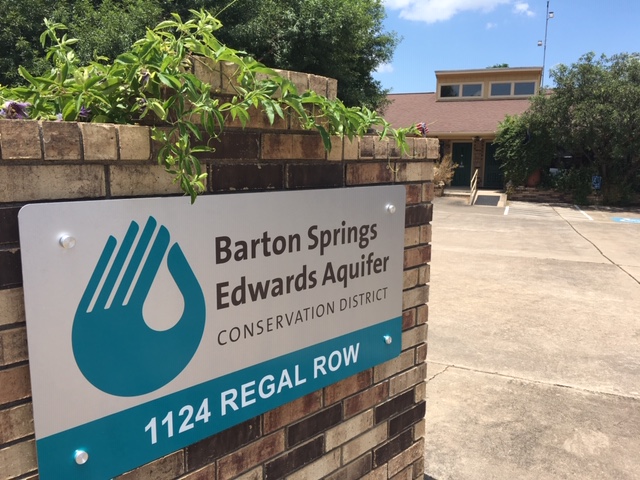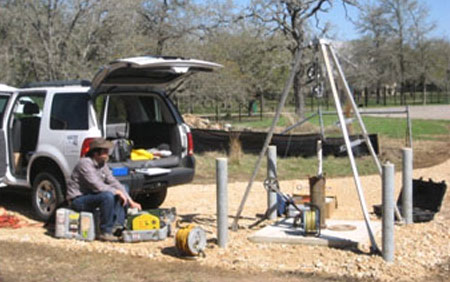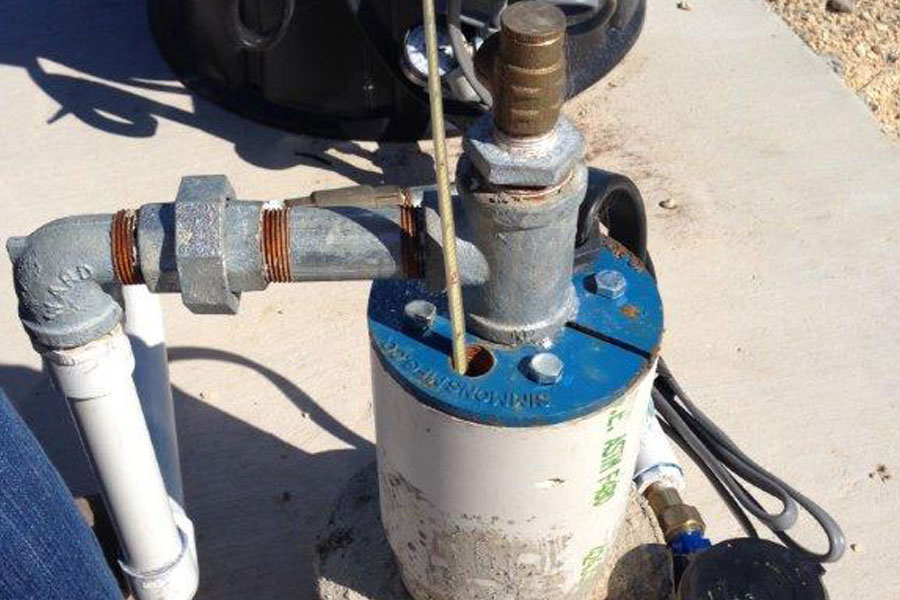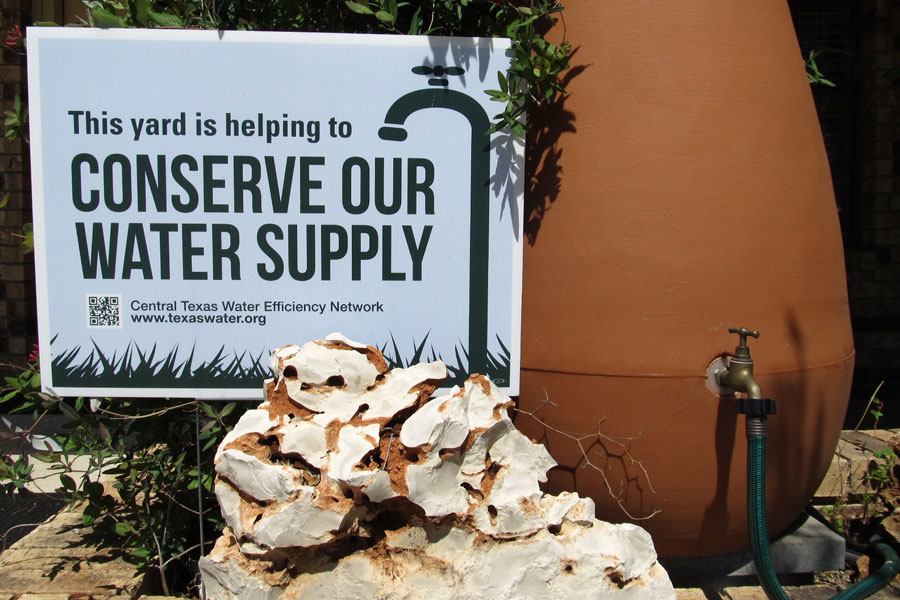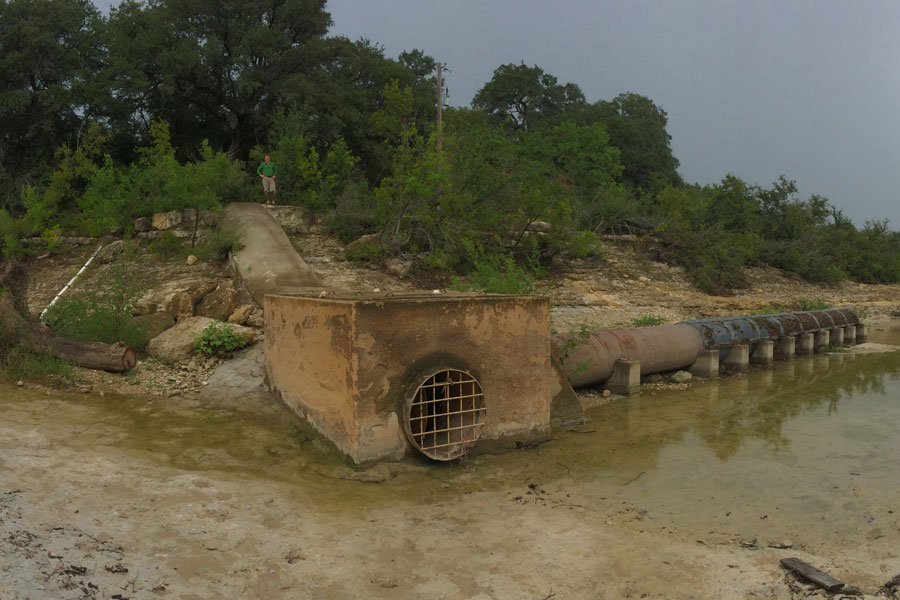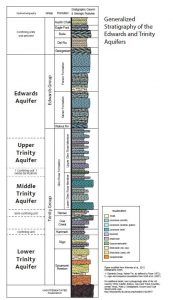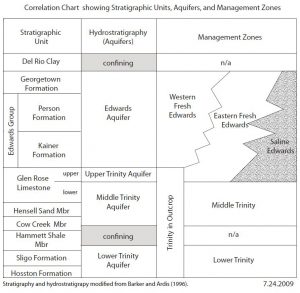Overview & Rules
Permitting Overview
The District is generally governed and controlled by a set of statutes, plans, rules, and policies, which constitutes a framework in which the District operates. Some wells are exempt from permitting if they meet the exempt criteria, but a permit is required to operate a nonexempt well for uses such as commercial, industrial, public water supply or irrigation. For all non-exempt wells, monthly meter reading reports are required and staff monitors District wide production for compliance with the District Rules and Bylaws, permit conditions, and approved drought contingency plans.
Rules and Regulations
Please refer to the District Rules and Bylaws or the District Management Plan for information on policy details. The District’s Well Construction Standards detail the requirements for construction, development, and completion of wells to produce from the Edwards aquifer, the Middle Trinity aquifer, or the Lower Trinity aquifer.
In certain circumstances where Permittees do not comply with District Rules, violations may occur and enforcement procedures are followed by the District, including drought management protocol, as outlined in the District’s Enforcement Plan.
Texas Water Code, Chapter 36
Chapter 36 is the statutory authority for all groundwater conservation districts (GCDs) in Texas. Except as specifically altered by the supervening statutory authority of enabling legislation, Chapter 36 establishes how groundwater is managed and administered by GCDs.
District Enabling Legislation, SDLLC 8802
The District’s enabling legislation, now codified, addresses specific powers and limitations of the District itself, and also designates how it is to be operated and is funded.
Exempt Wells vs Nonexempt Wells
Exempt wells do not require a permit and are not subject to curtailments during District declared drought. However, all Exempt wells have to be registered with the District and they have to be drilled according to the District’s well construction standards. To register a new or existing Exempt well the property owner must complete a registration form. To determine whether a well will carry an exempt or nonexempt status, there are specific exempt criteria that need to be met. Factors that are considered in making this determination are: the year a well was drilled, the use type, the capacity of the well and pump, the acreage of land and the pertinent management zone.
Other types of specialized wells are also considered Exempt and those types of wells include: Scientific Monitor Wells, Remediation Wells, Injection Wells, Closed Loop Geothermal Wells, Dewatering Wells, and Oil and Gas Drilling and Exploration Water Wells. These wells do not have to meet the below criteria.
If a well does not meet the exempt criteria then it is considered a nonexempt well for which a permit is required for groundwater withdrawal. Generally, all nonexempt wells are required to have a meter installed and monthly meter readings are to be submitted to the District. Owners of a nonexempt well are subject to curtailments during drought restrictions and are required to have both a User Conservation Plan (UCP) and a User Drought Conservation Plan (UDCP) on file with the District. There are a various water use types associated with nonexempt wells. Factors such as location, pertinent aquifer management zone, and use type help to determine the appropriate permit type. Nonexempt wells require one or more of the following: a well drilling authorization, a production permit, or a transport permit.
Permit Types
Factors such as location, pertinent aquifer management zone, and use type help to determine the appropriate permit type. There are a various water uses associated with nonexempt wells. You can seek a General Permit for certain nonexempt uses (test wells, domestic wells, monitor wells) but an Individual Permit is required for the following uses:
- Commercial/Non-profit Businesses: churches, schools, restaurants, corner stores, event/lodging venues, office parks
- Irrigation: solely for pools, wet/amenity ponds, golf courses, large-scale landscape, nurseries, green houses.
- Agriculture: commercial crop production, commercial livestock operations
- Industry: manufacturing, quarries/mines, cement plants, processing facilities
- Public Water Suppliers: retail or wholesale public water systems
General Permits [GP]
A general permit by rule allows for authorization of both drilling and groundwater production without a requirement for public notification or a hearing. These permits have an abbreviated application checklist and review period.
[GP] – Limited Production Permit (domestic/ livestock – wells serving a residence on less than 10 acres)
[GP] – Monitor Wells
[GP] – Test Wells (temporarily completed wells)
[GP] – Pump Test (aquifer test with one-time volume)
Individual Production Permits [IPP]
In 2004, the District’s sustainable yield study indicated that an increase in groundwater production from the Edwards Aquifer during drought conditions may cause many wells to “go dry” and detrimentally cause low spring flow. Therefore, as of September 9, 2004, District rules require that all new authorizations for pumpage from the Freshwater Edwards are issued as Conditional Production Permits. Conditional permits may be Class A, B, C, or D; each with distinct, more rigorous drought curtailments and allocation limits. An individual production permit typically has a requirement for public notification or a hearing when there has been an application for drilling or groundwater production.
[IPP] – Historical Fresh Edwards
[IPP] – Conditional Fresh Edwards (Class A, B, C, D)
[IPP] – Historical Trinity
[IPP] – Historical Saline Edwards
Management Zones
The available permit options for a Nonexempt Well are determined by the well use type and the pertinent management zone that the well is located in. The pertinent management zone is determined by the well’s geographical location and the target aquifer to be produced from.
